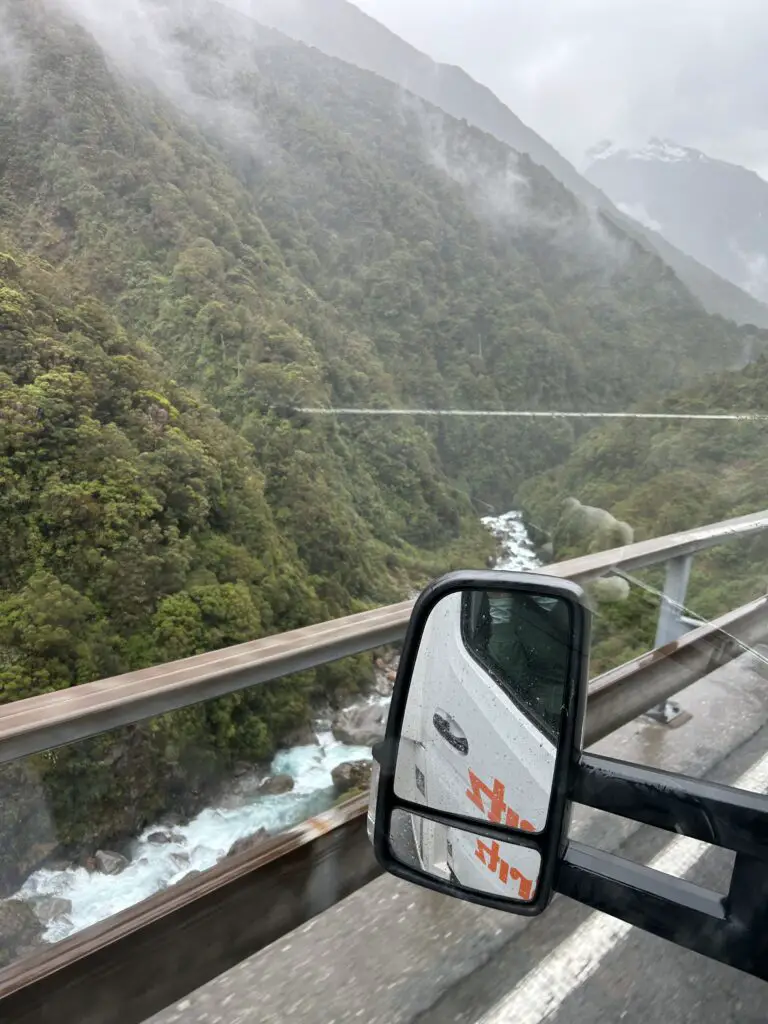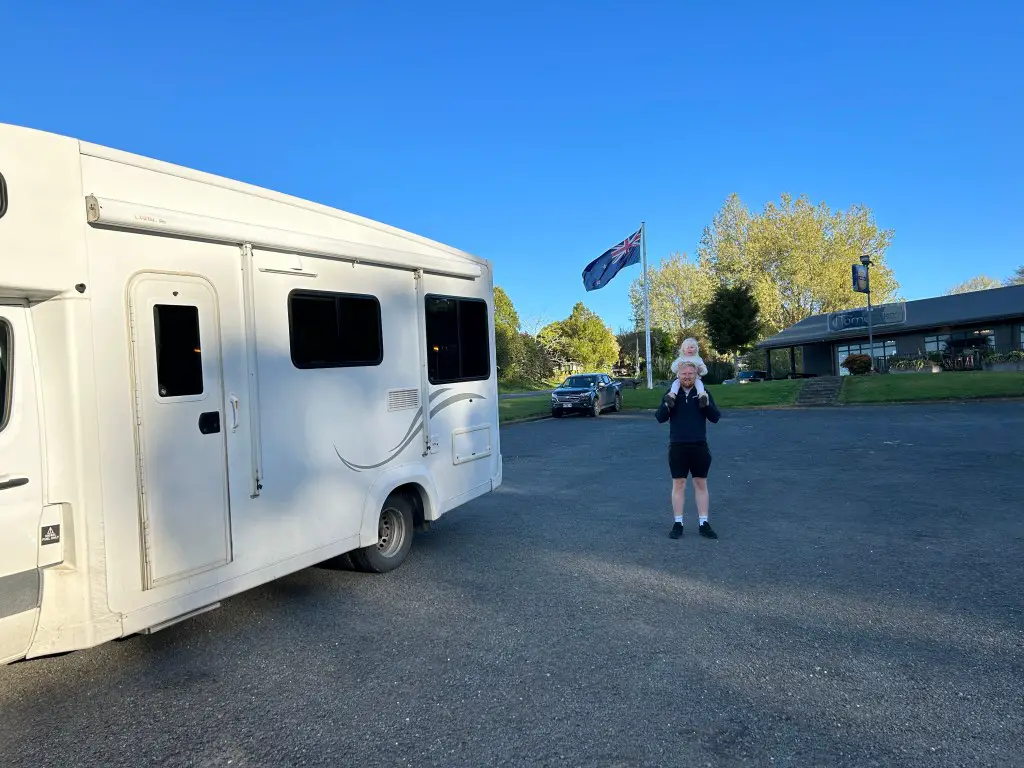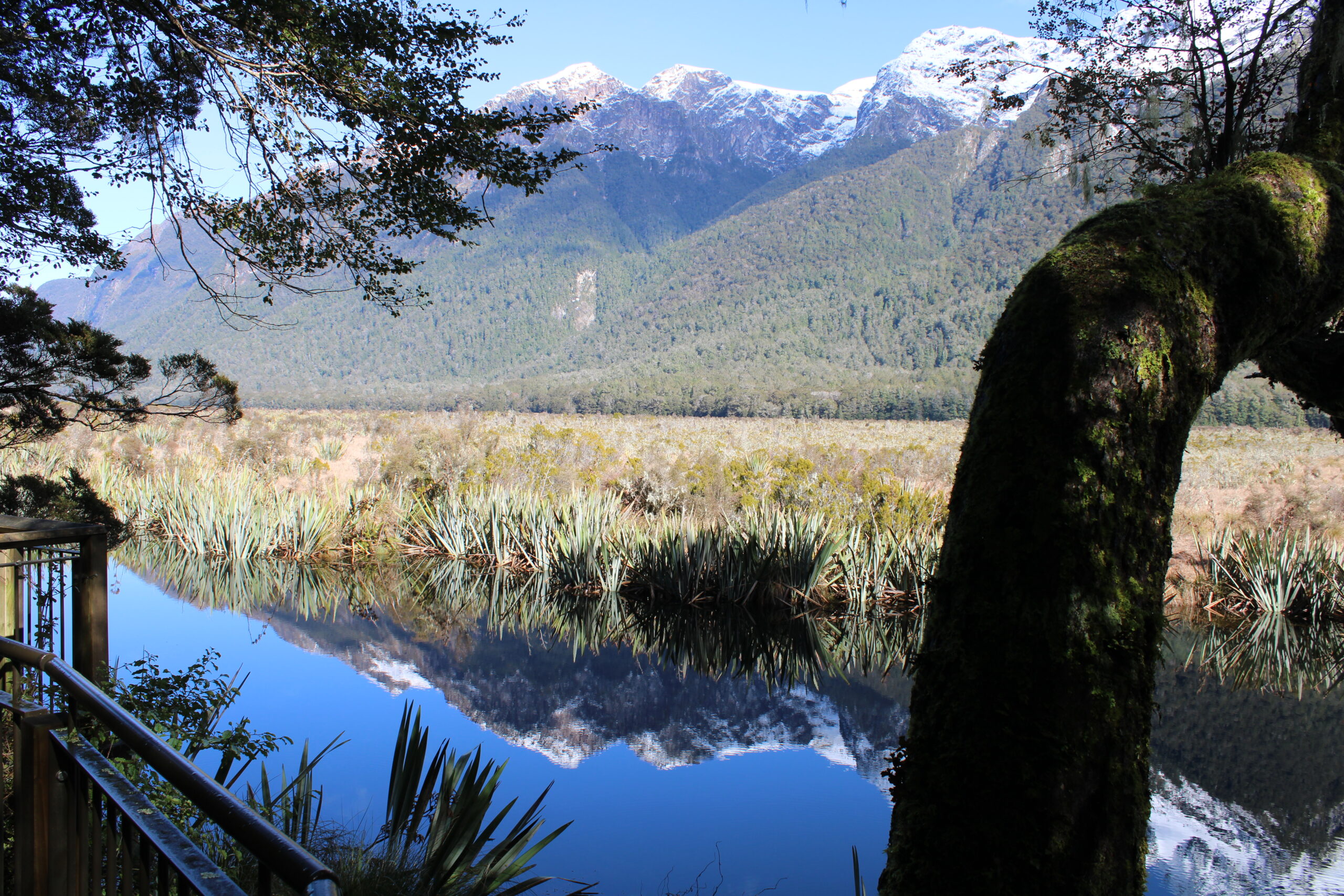When we booked our trip, we only had a couple of weeks to plan our itinerary and didn’t have much time to research some of the basic things you need to know, such as the tipping etiquette or whether you need to bring cash. So here’s everything you need to know before travelling New Zealand.

What’s the currency in New Zealand?
Kiwi’s trade in New Zealand Dollars ($NZD).
What VISA do you need to visit New Zealand?
You don’t currently need a VISA from places like the UK and the USA, but you do need need to get an NZeTA which is a VISA waiver (you can find the full list of countries here). It takes up to 72 hours to get issued and costs $52NZD per person if done through the app, which is about £25.
Do you need to fill out a passenger declaration form?
Yes, a passenger declaration form is required if you’re travelling New Zealand, and must be completed within the 24 hours before arriving at customs. It’s free, and takes about 10 minutes to complete – you can fill it out on the NZTD app, or on their website here.
What are the COVID19 entry requirements?
There are no checks or requirements to have a COVID19 vaccination to enter New Zealand.
Do you need vaccinations for New Zealand?
There are no specific vaccinations that you need that you wouldn’t most likely already have as a child such as MMR, tetanus, diphtheria, and whooping cough, as well as hepatitis B and polio, but speak to your doctor if you’re in a risk group in case your circumstances are different.
Which airports can you fly into in New Zealand
There are 4 international airports in New Zealand that you would fly into; Christchurch and Queenstown in the south island, and Wellington and Auckland in the north. Auckland is the biggest airport and has a much bigger selection of flights; to plan your stop-over and see how to fly direct, have a look on flightconnections.com.
What plug types do they use in New Zealand?
New Zealand, Australia and the Pacific islands all have type I plugs. If you’re going for a camper van holiday, there are plug sockets but a lot will also have USB sockets, so don’t go crazy when buying the adaptors.
Is it easy to drive in New Zealand? What side of the road do they drive on?
If you’re from a country like the UK or Australia who drive on the left, then it’s relatively easy, as they also drive on the left. Most of the roads are in great condition and the country is set up for motorists and tourists. One thing to note is that the roads are extremely windy and can be steep, so you have to drive slow and take extra care with the turns. This means that your journeys will almost always take longer than you first think, so add in enough extra time so you’re not rushing!

How long should you spend travelling New Zealand?
Between 4 and 6 weeks would be best if you’re happy to move around every day or two and want to explore all that NZ has to offer. We spent three weeks with quite a full itinerary and we still didn’t get to see everything we wanted, having said that you could condense your plans down to fit your timescale like we did. I definitely wouldn’t spend any less than 2/3 weeks or you’ll miss out on so much, especially as it’s such a long way to travel.
Is the South Island better than the North Island?
It all comes down to personal preference, but we found quite a difference in the overall vibe between the south and north island. The south island is peaceful, relaxing and stunning. You could drive for miles without seeing people (depending on what time of year you travel), whereas the north island has over 75% of New Zealand’s population, so it’s much busier and there are a lot more towns and cities. If you’re looking for beautiful hikes and to live in true nature, then the south is for you. If you’re interested in an activity packed trip with a bit more of a nightlife, head to the north!
How do you get between the North and South Island?
Catching a ferry is the most common way to cross the Cook Strait, which goes between Picton in the South and Wellington in the North. The crossing takes around 3 hours, but can be longer in bad weather, which happens more than you’d think. The Cook Strait is often considered one of the roughest stretches of water as it’s the only gap between the mountains in the North and South and creates a wind tunnel, resulting in some crazy waves. Don’t be surprised to experience swells of 3-4m in bad weather. (You wouldn’t think a large ferry could move so much but trust us, it does. Take travel sickness tablets if you’re prone to it!).
The price varies a lot depending on type of ticket you get and whether you’re a foot or car passenger. The two ferry companies are Interislander and Bluebridge so check the cost for each to see what they offer!
Another way to get across would be to get a flight. There are few different airports to get a domestic flight from and to, so have a look on Skyscanner.com to check your preferred airport.
When is the best time for travelling New Zealand?
Obviously the summer months of December – February will be the warmest and sunniest months, but I truly believe October is one of the best time to go! We visited around this time of year, which is the start of their spring, and we had a real mix of weather, but it was all still so beautiful. We had some days that were a bit rainy, but some days were sunny and 20°C! The best thing about it is that it’s shoulder season so there were hardly any other tourists around and we were able to do all the things we wanted without the crowds of other travellers.
If you’re travelling New Zealand in a busy period, I’d advise booking the campsites and activities in advance. We booked everything and didn’t have any issues. By the time we got out to NZ we did find some of the tours or trips suddenly got booked up so I can imagine these get full very easily in the warmer months.
What’s the weather like in New Zealand?
The weather is so diverse and changes so much from town to town. The North is generally a lot warmer than the south, partly because it’s closer to the equator but also it’s less mountainous and the towns aren’t sat high in the potentially-snowy mountains. In the winter, weather can reach -10°C in the higher areas, and summer can get above 30°C. We found that the weather changed vastly between nearby towns; raining one minute and 20 minutes over the other side of a mountain and it’s pure sun and hot! One thing that’s certain is that they have high UV levels so make sure to use SPF!
Do you need to bring cash, or can you pay for everything by card?
In general, we used card 95% of the time, but it’s definitely worth bringing some cash with you and change it to $1NZD and $2NZD coins. A lot of the proper campsites have laundry facilities which were a lifesaver for us, and we tried to do a wash at least once a week if not more. We found that a lot of them cost between $2NZD-$4NZD for the washer and the same for the driers.
Is New Zealand expensive?
To put it straight, New Zealand isn’t cheap, but it won’t completely break the bank! They have to import a lot of their goods which puts the cost up slightly, so your supermarket shop might cost you a bit more than it would in the UK. Bear that in mind when planning and budgeting!
Do they tip?
People in New Zealand do sometimes tip, but their tipping culture is more similar to the UK than the USA. Their overall salaries are higher so they don’t rely on tips, but if they deliver excellent service or you have a really great meal, a small token of gratitude is always appreciated.
Can you ‘free camp’ in New Zealand?
Not in the same sense as Scotland, no. There are free campsites (often car parks) that let you camp for free overnight if you’re in a fully self-contained vehicle, but you can’t just park up wherever you want and stay for the night. The ‘free’ sites will normally have a sign, and if they’re in a popular location, they might have time restrictions on when you can camp; you may need to be gone by a certain time in the morning.
How do you find campsites?
Download the Campermate app! I can’t stress enough how much we used this. It shows you the locations of campsites, dump stations, water stations and free-camping areas all over the country. It also shows you daytime carparks for your camper and pretty much everything you’d possibly need if you’re travelling New Zealand!
Can you stay at freedom campsites all the time?
In theory, yes because you can find fresh water and dump stations in a lot of places (you can find these on CamperMate). The issue would be charging your campervan battery.
How often does a campervan battery need charging?
A lot of campers and motorhomes have a separate battery for the ‘living’ area which needs charging up every 2-3 days depending on how much you use it. Some have solar panels and also can charge whilst being driven so if you’re set on exclusively free camping, make sure to look for this when renting your campervan!

Is New Zealand safe?
Yes, New Zealand is one of the safest countries in the world, but of course it’s not without its problems. Petty theft happens, as well as other gang related crimes, however it’s nothing to worry about as long as you keep your valuables safely locked away and out of site. The crimes are a lot more common in the north island where a majority of the gang patches are, and we were advised to stick to locked campsites and carparks to avoid any potential break-ins.
Do they have any dangerous animals?
No. They have absolutely no predators, unlike their neighbours Australia! They have possoms which might try and hurt you if threatened, and they have a lot of sandflies, but that’s about it. There are a couple of different spider species that are poisonous; nothing that you need to worry about!
Is it good travelling New Zealand with toddlers?
Yes, 100%! We travelled in a camper van for 3 weeks for the first time with our 2 year old and she absolutely loved it! Because it’s such a safe country, we never worried about things like illness, food contamination or unsafe drives (although like any country, you will get the odd reckless driver). The culture is fairly similar to the UK so we felt just as safe as going on a road trip up to Scotland (although the scenery is even more unreal).
If you’re planning on visiting New Zealand with toddlers, have a look at our 24-Days in New Zealand with a Toddler itinerary!
Are the people in New Zealand nice?
Yes, kiwi’s are really friendly people. They have quite a dry and sarcastic sense of humour, most similar to Australia and the UK.
What’s the legal drinking age in New Zealand?
The legal age to buy alcohol in New Zealand is 18, however there is no minimum legal age for actually consuming it.
Is there still a Māori Culture?
Yes, the Māori culture is still a big part of New Zealand life! Around 85% of the Māoris live in the north island and there are lots of different areas and towns where you can experience this. In Rotorua, you can do a Māori experience and visit an old Māori town, learn about the history and watch a performance from a real tribe, including the famous Haka!
One thing you’ll likely hear when you’re in the north island is Aotearoa, the Māori name for their country which is widely used. A petition was even set up in 2021 by the Māori Party to legally change the country’s name!
So, there you go! That’s everything you need to know before travelling New Zealand in a camper van!

Leave a Reply